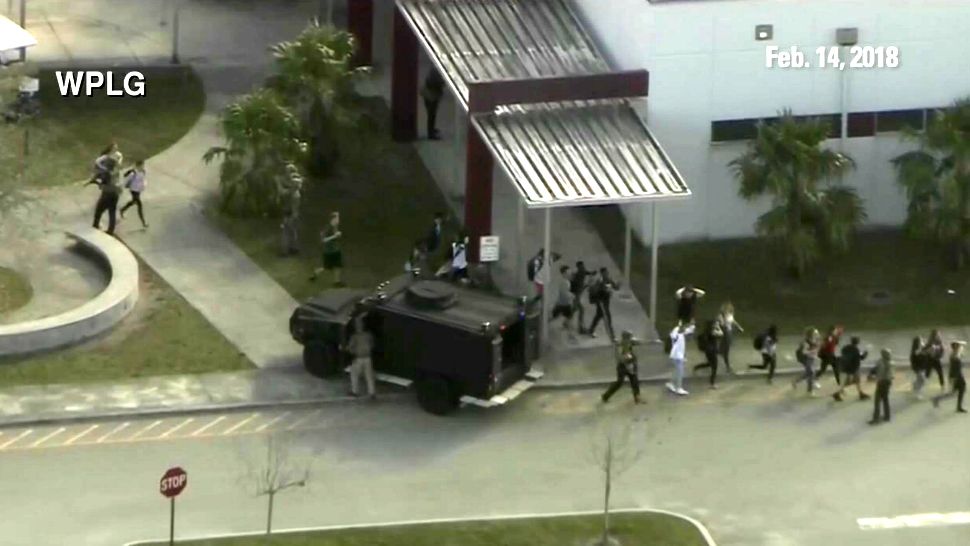SUNRISE, Fla. -- Delays in appropriately routing 911 calls during the shooting at Marjory Stoneman Douglas High School are a problem across the state and country, a panel looking into the tragedy heard Wednesday.
- Florida panel meets to talk about Parkland school shooting findings
- 911 routing delays are a problem state, countrywide, panel chairman says
- Coral Springs still trying to determine how many 911 calls it processed
- RELATED:
The tragedy's Public Safety Commission is meeting in Broward County for a three-day review in what is an extensive process to develop necessary reforms intended to try to prevent future tragedies and improve coordination by first responders.
Commission members were told Wednesday that the city of Parkland, Fla., where the attack occurred, contracts law enforcement services from the Broward County Sheriff's Office and fire/medical services from Coral Springs Fire Rescue. They are two separate agencies, each with their own dispatch centers and little ability to directly communicate with one another, the panel heard.
"Who in this world thinks when you call 911 and tell your story because you're in trouble and need help right now that someone is going to say, 'Hold on a minute -- I'm going to transfer you to somebody else,' then you have to tell your story a second time?" said Pinellas County Sheriff Bob Gualtieri, chairman of the commission.
"Every single cellular 911 call made from Marjory Stoneman Douglas High School, everyone in Parkland calling 911, it was going to Coral Springs Communications Center. Coral Springs is not the primary police provider; Broward County Sheriff's Office is," he said.
Seventeen students and staff were killed in the Feb. 14 shooting. A former student is accused in the attack, which left another 17 wounded.
"It seems as though every mistake that could have been made was made," said commission member Ryan Petty, whose daughter, Alaina, was killed in the attack.
Gualtieri cautioned that this is a problem seen across Florida, and the country, where many counties do not have consolidated dispatch services.
"Based on my experience, there is no doubt consolidation works and is effective in eliminating redundancies and provides more comprehensive services," Gualtieri said.
Coral Springs leaders told commissioners they are still trying to determine how many phone calls were processed on the day of the attack.
The commission also looked into the radio systems in place used by various law enforcement and first responder personnel, some of whom would later say had difficulty communicating with one another in response to the attack.
The MSDHS Public Safety Commission was created by Florida Gov. Rick Scott and the state Legislature in 2018 to investigate changes that need to be made to prevent future attacks.
"The work we're doing here is important. It's not going to bring my daughter Alaina back, but it will certainly help prevent anything like this from happening again," Petty said.
Gualtieri says there are glaring failures in the system.
"Enough is enough. We're going to make sure it changes," Petty said.
On Thursday, the panel plans to look at mental health services and gun laws to see what impact they may have had in allowing the attack.
The commission is expected to provide its findings in the first of a series of reports by January 2019.






